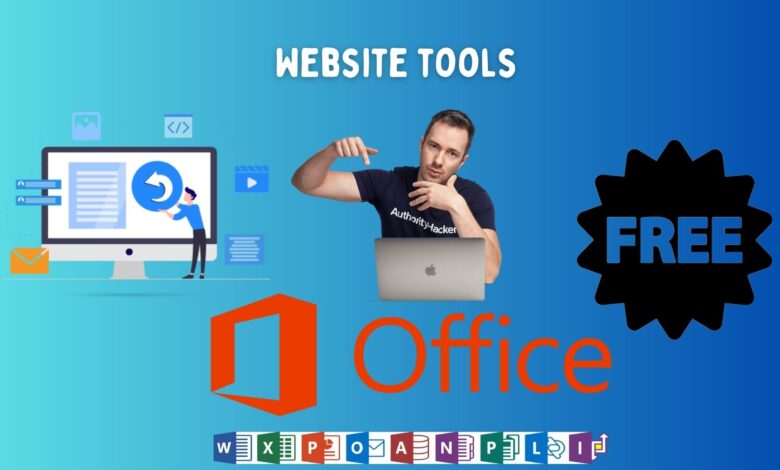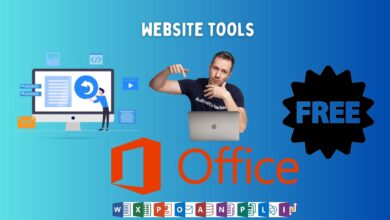Better digital tools can help migrants access benefits.

A large number of digital resources provide information for asylum seekers and other migrants, but the content is often out of date, and users worry about being exposed to online surveillance.
“If I’m undocumented, I’m not going to go to a website and click on a search option that says ‘I’m undocumented,'” one lawyer told Cornell researchers. “I fear who will take this information. Where is he going?
In the US, fear of tracking and the use of digital tools in the context of public benefits are among the top barriers preventing immigrants from accessing online resources and benefits, a multidisciplinary research team of experts in communications, health and law found.
To mitigate those concerns, websites, apps, social media and other digital tools that disseminate information to refugees should collect the necessary personal information and clearly state privacy policies, the academics recommend. A new study It focused on the information needs of US asylum seekers and how to best design digital tools to support them.
The team also developed by implementing recommendations. Rights to healthA website dedicated to sharing accurate and accessible information about health and legal benefits available to immigrants in the US – the world’s largest immigration system, home to nearly 45 million foreign-born people, about 14% of the population.
“It can be a very complicated system to navigate, even for experts,” he said Aparajita Bhandariof Cornell Social Media Lab and a doctoral student in the field of communication whose research explores digital technologies for vulnerable communities.
Bhandari is the lead author. Natalie BazarovaMS ’05, PhD ’09, professor of communication in the College of Agriculture and Life Sciences and director of the Social Media Lab, of the “Multistakeholder views of digital tools for US asylum seekers seeking health care and legal information” was published Nov. 11 in Proceedings of the Association for Computing Machinery (ACM) on Human-Computer Interaction and was recently presented at the ACM Conference on Computer-Assisted Collaborative Work and Social Computing.
Co-authors include Dr. Gunisha Kaur ’06, MD ’10, associate professor of anesthesiology at Weill Cornell Medicine and the Weill Cornell Center for Human RightsAnd Stephen Yale-LohrProfessor of Immigration Law Practice at Cornell Law School. As faculty colleagues at Mario Enadi Center for International StudiesAs part of the Global Cornell, he leads a group that studies the health of immigrants and refugees Migration: The Global Grand Challenge initiative, with collaborators Bazarova and Bronfenbrenner Center for Translational Research (BCTR)
The researchers interviewed 24 asylum seekers in the US representing 18 countries and 13 health care and legal professionals who work with asylum seekers and other immigrants.
Insights from relevant stakeholders informed a more complete and nuanced understanding of asylum seekers’ information needs and barriers to using currently available digital tools. The team reported the following additional challenges and design recommendations:
- Uncertainty of informationThe ever-changing legal landscape and differences in federal, state, and local policies can lead to inaccurate information, with dire consequences for refugees who are unsure which sources to trust. Tip: Be clear about sources of information and when it was last updated. Despite concerns about online surveillance, the researchers said, US asylum seekers generally perceive websites ending in .gov and .edu to be more trustworthy.
- AccessibilityAccess to information can be limited by expensive internet access, language barriers and a lack of digital literacy – although the researchers found that asylum seekers regularly use digital resources for everyday activities. Tip: Use simple, clear and consistent language and icons to overcome language barriers, perhaps images instead of blocks of text e.g. Visual resources Provided on the Rights to Health website.
- Contextual sensitivityExperts emphasized that immigrants’ experience and eligibility for benefits depends on their environment and social status. Recommendation: Appropriately define tools to address migration issues at the national level or to engage in depth with a few issues. Work with established community groups to navigate contextual differences and gain the trust of immigrant communities.
“There’s a lot of information out there, but it’s often presented in complex legal language that even a native English speaker would find difficult to parse,” Bazarova said. We sought to provide a roadmap and framework for designing better digital tools for refugees and other vulnerable populations.
In addition to Bhandari, Bazarova, Kaur and Yale-Loehr, the co-authors of the study are included. Diana was freed.PhD student in Information Science at Cornell Tech; Faten TakiInstructor in Pharmacology in Anesthesiology at Weill Cornell Medicine; Tara PilateMedical student and member Human Rights Impact Lab Medicine by Weill Cornell; Jane Powers, Ph.D. ’85, senior extension associate at BCTR; and Tao Long ’22. Vince Hui, 21, an applications programmer at the Social Media Lab, supported the website’s development.
Research funding came from the Immigrant Initiative supported by The Andrew W. Mellon Foundation. Cornell’s Office of Academic Integration; and the Cornell Immigration Law and Policy Program, which is supported in part by the Charles Koch Foundation.
We offer you some site tools and assistance to get the best result in daily life by taking advantage of simple experiences
